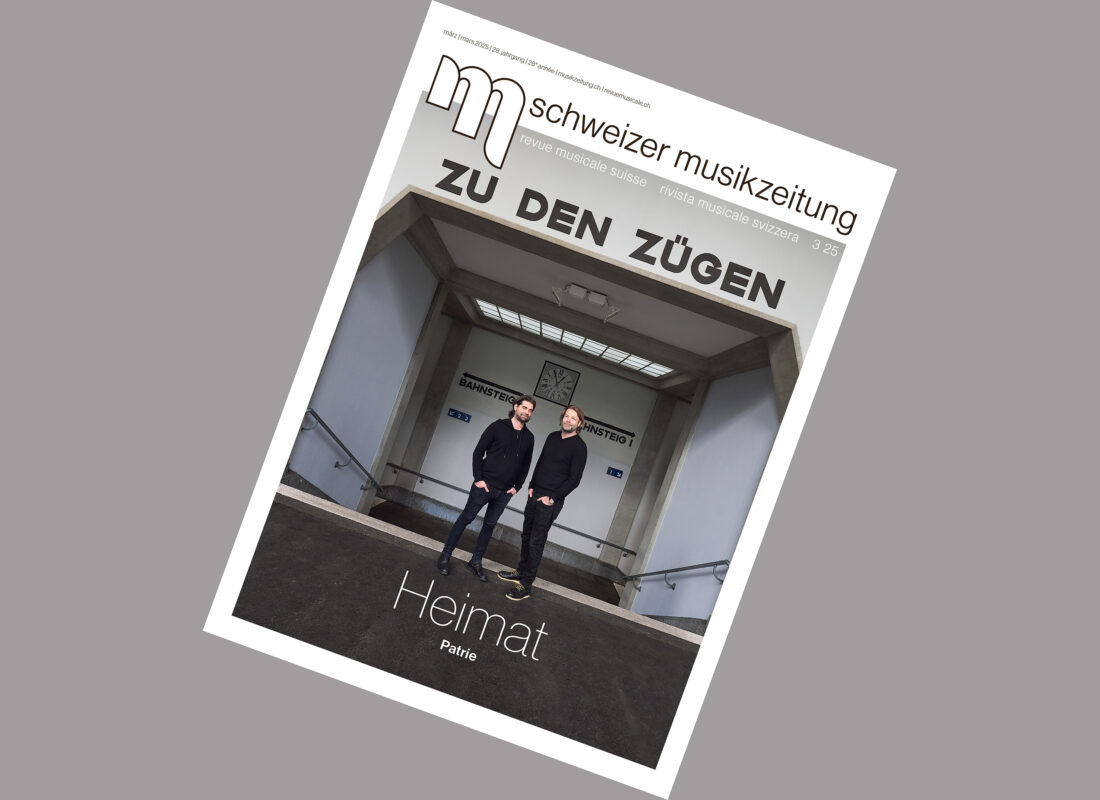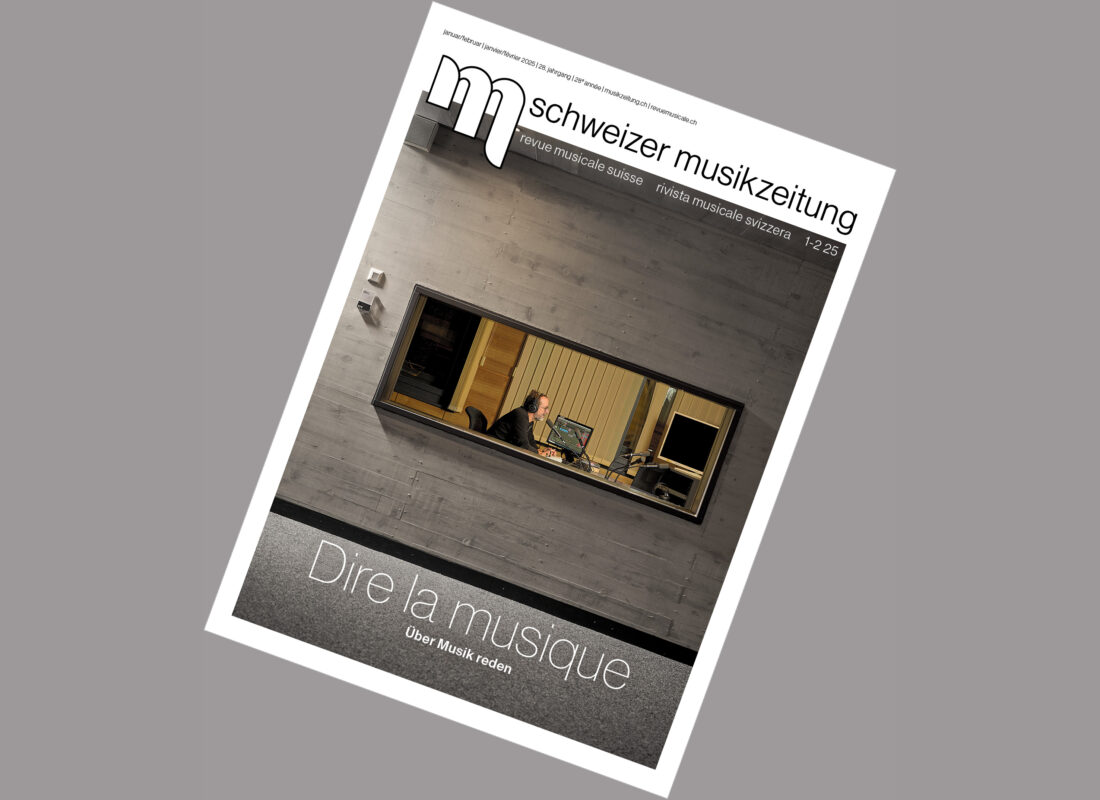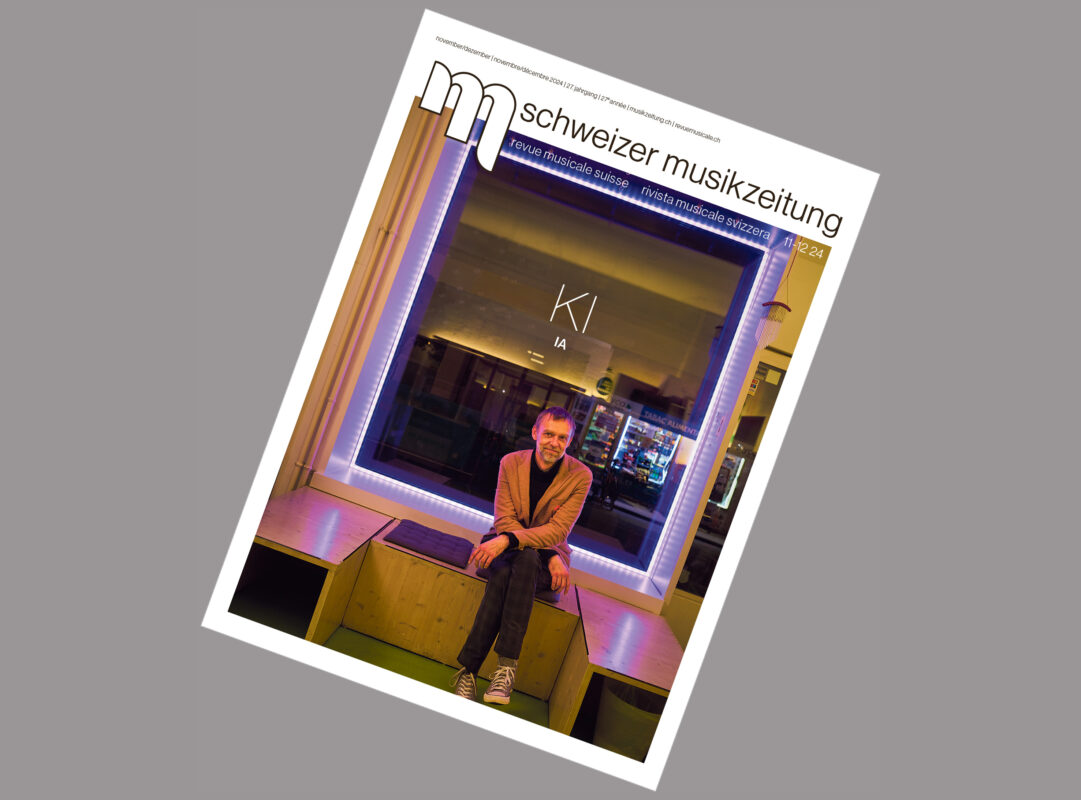The star behind the scenes
Christian Buxhofer died unexpectedly on February 16 at the age of 52. His death is an enormous loss for Arosa, Graubünden and indeed for the whole of cultural Switzerland.


Christian Buxhofer died unexpectedly on February 16 at the age of 52. His death is an enormous loss for Arosa, Graubünden and indeed for the whole of cultural Switzerland.
There were three hearts beating in his chest. One belonged to his family, as a husband and father of a 13-year-old boy, one to the Bündner Tagblatt, which he shaped for years as editor-in-chief, and one to culture, specifically music, which he offered a wide-ranging platform in Arosa. And perhaps in the end it was his burning passion for these things that ended his mortal self too soon.
Each of these areas of his life received so much attention and care that it is hard to imagine how all this could fit into a 24-hour day. Christian Buxhofer, however, was a very extraordinary man. I got to know him at a concert I gave with my fellow musicians from the casalQuartett in Arosa in 2006 to celebrate the 100th birthday of Hans Schäuble, the composer born there in 1906. This meeting gave rise to the Arosa Music Festival, one of the many projects that Christian Buxhofer initiated and knew how to pragmatically turn into reality by bringing together partners of all kinds. In a few days, it will take place for the last time under his direction.
Since 1985, he has been a volunteer for culture, in the small mountain village of Arosa at an altitude of 1800 meters. You can't pass through this village, you can only arrive and leave again. It is always a destination, never a random stop. It is a place surrounded by rough and wild nature, but at the same time it can develop so much warmth, security and potential for longing that you quickly fall into a kind of attachment trap. Getting involved in Arosa means: either completely or not at all. Half measures don't stand a chance.
Christian Buxhofer was not a man for half measures. He had the rare gift of being able to constantly and gently emphasize his concerns, even in the face of resistance and without any prospect of personal laurels. Genuine appreciation of his work made him overjoyed, but he did not demand it. His greatest reward was that what he initiated was successful and had quality.
Today, more than a quarter of a century after the start of his engagement - back then he was a teacher in Arosa - his former adopted home is the place in Europe with the most music courses from Celtic harp to children's choir, has an opera festival in summer, an Easter festival with a mixed program between classical and folklore and, for the past three years, a summer Music Academy, a magnet for numerous music students from all over the world. However, Christian Buxhofer was not only interested in the heavyweights of the annual planning, but also in small and fine cultural continuities, such as the weekly concerts in the acoustically wonderful and visually appealing Bergkirchli. Anyone who is in Arosa knows that they can listen to a concert every Tuesday at 17:00. Free of charge and often with surprising content in the intimate, archaic church room with a view of the village and a magnificent mountain backdrop.
But Buxhofer was not just a provider of ideas, he was also a hard-working doer and congenial networker. He held all the strings in his hand, highly virtuosic and versatile, charismatic and engaging, patient and insistent, knowledgeable and enthusiastic. He never gave up, for him there was a solution to every problem and he was usually the one who actually provided the solution.
In his work for the Bündner Tagblatt, he was particularly interested in political issues. Yes, he could have been a politician himself. His ability to communicate and his sense of mission, his convictions and his public spirit would have been perfect prerequisites. But he probably knew the pitfalls too well. Making lazy compromises would have been very hard on him. Christian Buxhofer could not be bent for purposes that did not make sense to him. His down-to-earth attitude and straightforwardness ensured that he had a clear head and a clear sense of purpose. But independence and the ability to make his own decisions were also simply too important to him. In the field of culture, he was able to get involved as he saw fit.
As an amateur organist, he knew the music and the often demanding expression of artistic characters and idiosyncrasies so well that he was able to adapt to them perfectly. It was impossible for him not to get along with a musician; he knew how to recognize sensitivities, to see and meet needs without bending over backwards. This made him discreetly and unintentionally popular and a sought-after partner. People confided in him, they blindly handed over responsibility to him, simply because he had such a winning personality. Conversely, almost nothing could be refused, he was convincing, without big words or gestures, just like that.
We musicians are happy when we feel that what we do is accepted. When we find ears that listen, words that encourage, eyes that are enthusiastic ... Of course, Christian Buxhofer was not naive. On the contrary, he was psychologically highly refined, or rather: sensitive. Any façade, any affectation could really shake him. They offended his sense of balance. His service to art was so sacred to him that he saw egocentricity and nerve-wracking fuss for what they were: superfluous. It was important to him that people were on fire for the cause, be it in Arosa or at Carnegie Hall in New York ...
There is a difference between providing an artist with a stage and giving them one. prepares. Christian Buxhofer was able to do this like few others. He leaves behind not only a family, but also a huge, dismayed, grieving family of artists and a veritable fan community. He was a silent star behind the scenes and a widely respected and valued friend.
His death is an enormous loss for Arosa, Graubünden and indeed for the whole of cultural Switzerland. Continuing his work is both an enormous task and an urgent duty.
Christian Buxhofer died unexpectedly on February 16 at the age of 52.








